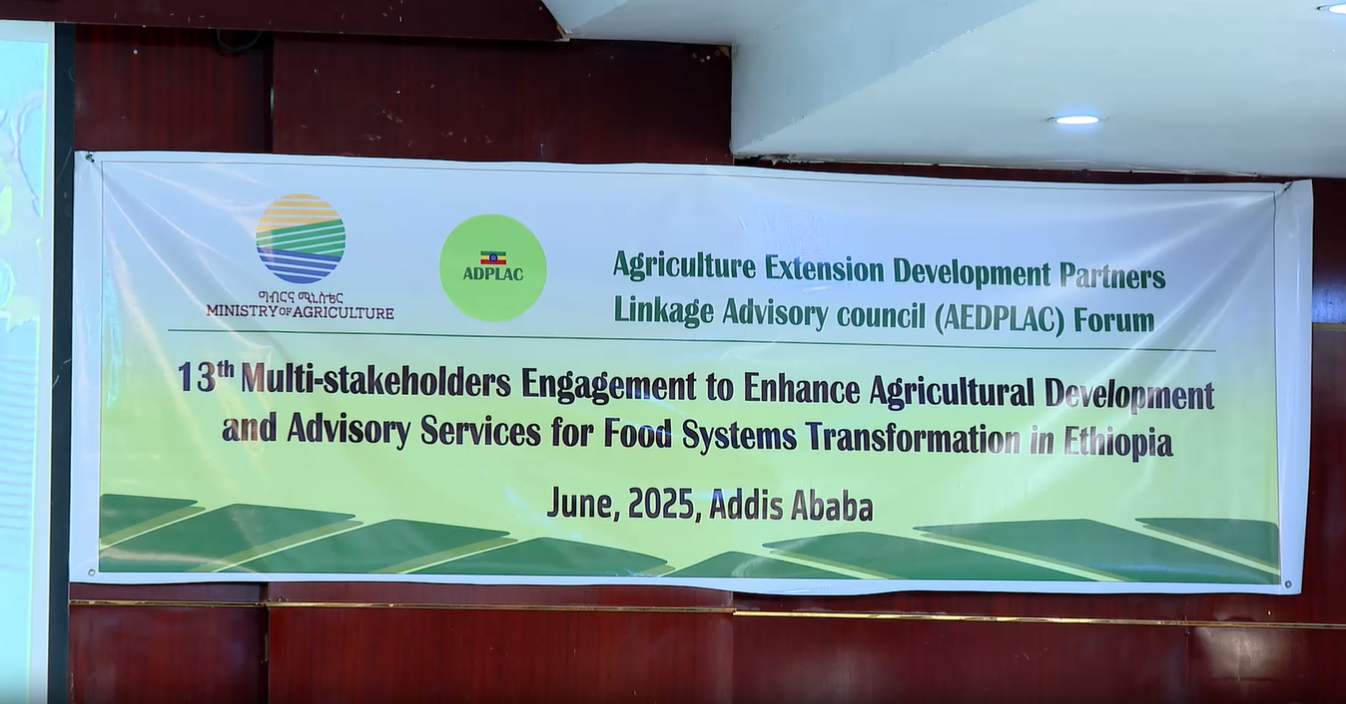Ministry Underscores Collective Action as Catalyst for Agricultural Efficiency and Growth - ENA English
Ministry Underscores Collective Action as Catalyst for Agricultural Efficiency and Growth

Addis Ababa, June 27, 2026 (ENA)— The Ministry of Agriculture stressed the need for coordinating efforts among diverse stakeholders that are essential to advancing agricultural productivity and operational efficiency in Ethiopia.
The 13th Annual Forum of the Agricultural Extension Development Partnership Linkage Advisory Council was held today in Addis Ababa under the theme: “Multi-Stakeholder Engagement to Enhance Agricultural Development and Advisory Services for Food Systems Transformation in Ethiopia.”
Speaking at the forum, State Minister of Agriculture Melese Mekonnen underscored that the success of Ethiopia’s agricultural sector hinges on coordinated efforts among a wide range of stakeholders.
He noted that Ethiopia has embarked on comprehensive reforms aimed at modernizing its agriculture sector. As part of these efforts, several draft proclamations, including those on seeds, contract farming, and multi-stakeholder agricultural extension Services and Administration, have been submitted to the House of People’s Representatives (HPR) for public consultation.
These drafts incorporate global best practices from countries such as India, Brazil, and various African nations, Melese said.
The state minister also emphasized the government’s ongoing work in implementing food safety, nutrition, and post-harvest handling strategies.
“We are distributing training manuals to extension workers and farmers to boost their practical skills and knowledge,” he added.
Melese noted Ethiopia’s untapped potential, pointing to the country’s vast arable land, abundant water resources, and youthful population, 65 percent of whom are under the age of 30.
With effective policy implementation, these assets can drive food security, promote food sovereignty, and expand export potential, he stressed.
Reaffirming Ethiopia’s commitment to attracting investment in agricultural extension services, he called on development partners and stakeholders to prioritize technology transfer and knowledge-sharing, particularly for women and farmers in remote areas.
Fentahun Mengistu, Country Director of the Sasakawa Africa Association (SAA), noted that the organization has been working in Ethiopia since 1993 to support smallholder farmers.
SAA’s initiatives align with national priorities and address pressing challenges such as climate change, gender inequality, and agricultural innovation, the director said.
Wen Liming, Veterinary and Dairy Expert with the Chinese Senior Agricultural Expert Team, on his part shared insights from their nine-month engagement in Ethiopia.
“We launched the China-Ethiopia Agricultural Cooperation Poverty Reduction Demonstration Village in Godino, Adea District,” Liming said. “This project goes beyond technical support; it embodies our philosophy of living and working alongside the people.”
He emphasized that China’s agricultural cooperation with Ethiopia is grounded in shared growth, mutual learning, and long-term partnerships, aimed at modernizing agriculture through innovation and hands-on support to farmers.
The forum brought together senior government officials, representatives from the Ministry of Agriculture, regional administrations, universities, agricultural research institutes, civil society organizations, financial institutions, NGOs, and development partners.